The presence of a machine gun in your opponent's hands put you in a weak position for any negotiations. At least I felt like that, and the readiness for fist-fight left me instantly. I handed over the wallet, as requested. That might have solved the issue, but the little amount of money inside made attackers even more angry. However, they seemed to get more and more nervous by that prolonging confrontation on desert road. My pockets were searched and emptied, and a jacket torn from my hand. Then they left in hurry before anyone else could witness what had happened.
That was the "welcome back" in the Nile Valley. Or, more accurately, on the Aswan Desert Road which goes quite close to the river, avoiding the valley itself. But before that misfortune, the adventures had been absolutely pleasant.
In the lovely Gardens Hotel, where I stayed in Mut, there was a permanent German resident, who spoke fluent Arabic. Otto "Othman" lived in a room next to mine, spending the winter — as usual — away from cold Europe and enjoying mild temperatures of Sahara. He had had a great experience in travelling across North African states on foot, with a trailer cart, and also on a bicycle. At the same time, he remained unimpressed by the developments of civilization and had no mobile phone, not to mention an email account.
From Otto I learned a few new useful things about living on low budget in Egypt and travelling across the desert. The top favourite one is a recipe for energy bomb, which perfectly matches with cycling and demanding climate:
Get a sugarcane syrup, which is called here عسل أسواد ('asal aswad), which means "black honey". Mix it with equal volume of tahina (sesame paste) and stir well, watching as the two liquids form a quite solid and very sticky matter. This mix gives a huge load of energy and lasts for few days. If you need more time, keep the ingredients separate.
It worked like a charm and became my favourite sweet since the very moment when I had tried it. With this and other good ideas from Otto I spent few days in Mut, spending record low budget of about one dollar for a day's food.
Then he left for two-weeks stay in the desert and I cycled further eastwards. After Dakhla oasis there is not much of a real desert. I found, however, two camping spots away from human settlements.
The New Valley project brings not only agriculture there, but also left some ghost cities. In the middle of nowhere, away from any field or visible source of water, I stumbled upon two towns. Made of identical buildings, being completely empty, they looked like something had gone terribly wrong there. Unfortunately, the workers had left the construction sites without cleaning it from cement dust and other leftovers, so the houses were less attractive than the desert camping spots.
The last of the oases, Kharga, I passed in the daytime, just stopping for quick shopping and even shorter dip in warm water. The diesel pumps at every irrigation network bring clean water from underground. It is widely accepted, at least for the male half of the population, to use them as bathing sites. And the locals were very helpful in locating these spots.
Interesting thing, that the villages around were obviously new, judging by their names. There was Baghdad, Palestine and even Paris. All of them connected by railway line, not working and covered by sand. Seemed like another mismanagement in the huge settlement project.
The long road to Luxor begins with double checkpoint. First there was a police post, where a guest soldier informed me that I would soon arrive to a military one. As the sun had already set, he asked me to stop overnight there. I did not want, but his colleagues intercepted me and prepared a bunk bed in their dark building, where electricity had gone out. The conversations in Arabic were not easy and touched the usual topics (You are 30 and not married? Why?!) but the shared dinner made our smiles wider.
That was a good sleep. The night resulted to be cold and windy and in the desert I would not have a good rest. During the night Ahmad — the soldier I had met at the police post — finally arrived. Having someone able to translate we had a very nice morning with those conscripts, forced to stay for three months among Sahara's sands.
That day was the last one with any interesting views. Struggling again with a strong headwind I climbed a limestone plateau in the evening. Since that moment the surroundings looked awfully dead. The porous rock had ashy gray colour and it's flat surface, covered with gravel, stretched everywhere around up to the horizon. I again installed a book in my map case and read Conrad's "Heart of darkness" during the boring ride of next day and a half.
Finally, at the end of 1400km desert ride, I got close to the Nile again. A dusty valley with a constant noise from passing trucks was my last camping before meeting the river. In the morning I arrived to the Luxor/Aswan intersection.
Having been told so much unpleasant things about cycling in the Valley, and looking at the distances on the map, I decided to follow the Aswan Desert Road and turn left to Isna after some 30km. Interestingly, since the very morning I felt uneasy, insecure, and suspected some problems waiting to come out. How could I know that they would appear so soon?
The traffic was not heavy and the road had wide shoulder. With tailwind I could keep a pleasant speed of about 25km/h. A few kilometers after a short rest at roadside café, I was alone on the road, with only a single white pick-up coming from the opposite direction.
When the car was passing me, the driver shouted something, but I did not care, as usually. Things like that happen many times each day. But then I noticed in the rear-view mirror that the car turned back and followed me. If I had noticed then that the car had no number plates, perhaps I could have prepared myself for what happened next.
The pick-up came closer and I saw both the driver and passenger making the
international gesture: fingers upwards, being rubbed together.
'Fluss, money!', they said.
'What? No, no, no. Forget it', i replied, being quite surprised to hear from
two adults something I had been used to hear from children.
They overtook me and some hundred meters ahead they turned back, stopping on the opposite shoulder. The passenger left the car and crossed the street. He gestured at me to stop, but I tried to avoid him and go forward. He jumped then and caught the jacket strapped to the rear bag, shouting something angrily and forcing me to stop.
I dropped the bike and rushed to fight, but saw the driver coming from the car, holding a machine gun in his hands. That forced me to be more cooperative, unfortunately.
The perpetrators were obvious amateurs, and seemed to be scared almost as much as I was. While the gun-wielding driver kept calm, the passenger was very aggressive and at the end he threw a handful of gravel in my direction, trying to follow it with a clumsily hurled stone, which just rolled on the asphalt. Perhaps the contents of the wallet made him angry, or maybe he was annoyed by my initial resistance?
Just as the pick-up started going away, I noticed a car coming from the same direction I had cycled from. Stopped it instantly and showed the passengers what happened, demanding them to call police. Unfortunately, they had no signal in their cell phones. We loaded the bike on the back and headed to the nearest police checkpoint, some 50km away.
The robbers' car was both preceded and followed in a time of few minutes by two columns of police cars. We stopped the second one, but the policemen did not have even a single radio with them and helplessly tried to make their cell phones work.
I arrived to the checkpoint, where I was put on another civil car and brought back to Luxor police post. There I was transferred again to a police car and carried to a police center, where finally we found an officer speaking English. I described the story, browsed fruitlessly through a pile of criminals' photos and told as much details as I could. Then they took me to Qurna, a west-bank side of Luxor and put into a hotel near the police station, where we wasted another hour waiting for nobody knows what.
Here a big thanks go to the staff of Pharaohs Hotel, who not only hosted me during that night for free, but also fed me and used their personal contacts to spread the story and make people aware of stolen things that could appear in circulation.
I am quite happy to come out alive and within one piece. I also saved the most valuable parts of the belongings, including the bike itself, passport, camera and hidden supply of cash. Among the lost things, however, there were the bank cards, which I have to recover in order to go much further.
As I learned, it had been the most blatant act of robbery in the last years, but a clear signal that Egypt is not getting any safer. If anyone wants to cycle in the area, I recommend the Nile Valley. I am sure that in a presence of other people such thing would not have happened.

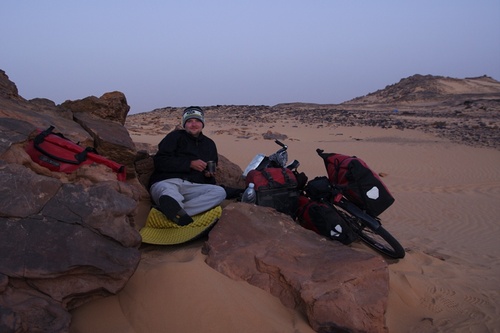
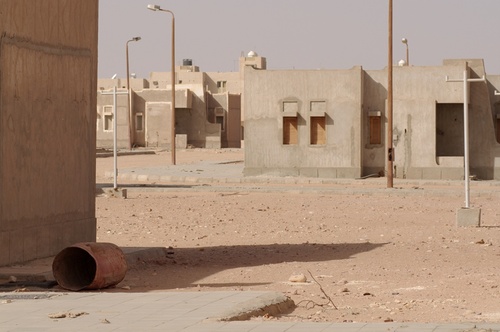
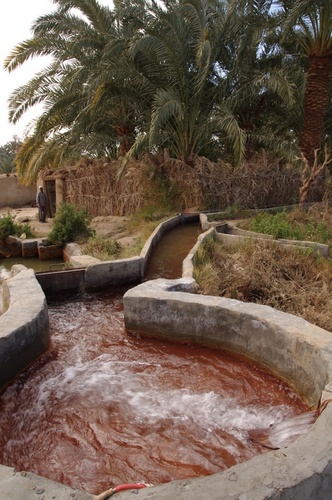
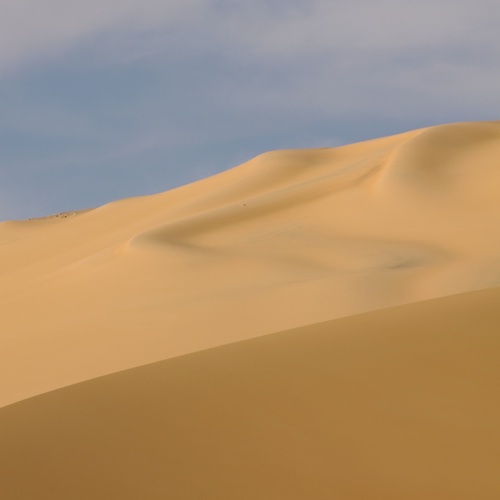
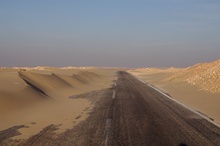
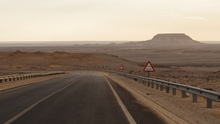
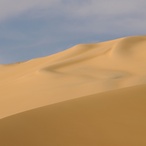

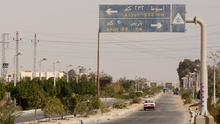
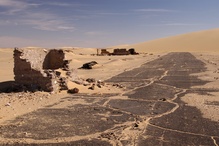
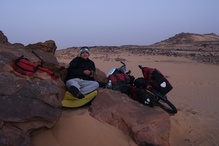
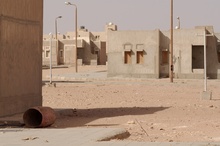
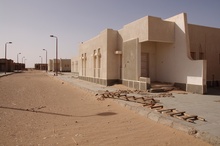
Comments:
xmk
Robb
Choć to okropne to i tak cały czas myślimy z Anią - na szczęście to tylko portfel i k*** żal :/
Trzymaj się chłopie!
Mocno.
Szymon Stoma
tbe
swoją drogą, jakbyś się wdał w bójkę z tymi typami, to obawiam się że w razie czego mogliby wrócić z większą ekipą
mama
A co z GPS-em?
Ściskamy!!!
Trzymaj się!
Marcin Sadurski
Avila
pigiel
fajne te pustynne abstrakcje mam już na pulpicie, poproszę o więcej :)
i niech moc będzie z Tobą!
slim
Arkosław
Oby się to więcej nie przydażyło.
Jak to mówi moja znajoma: "NO TO PRZEŻYŁEŚ JAK PIES W STUDNI"
nara.
rodzinka z Gliwic
magda & joseph
greetings and goodwill from luxor governorate.
kolor
W takich momentach łatwo o złe decyzje w oparciu o emocje.
Dobrze że był tam później ktoś kto zareagował w ludzki sposób. kurcze, ale się obudziłem z tym wpisem.. dopiero teraz to przeczytałem.
Kotello
Vito
ws
Został zmuszony do "milczenia".
Trwa organizowanie "przesyłki" do Sudanu.
kaha
kaha
Ktokolwiek widział, kto ktokolwiek wie:
Poszukiwana osoba, ktora wybiera sie do Sudanu (najblizsze 2 tygodnie) lub Etiopii (najblizsze 2 miesiace)
Franc z Francji
Arkosław
Wojtek
Oby dalej było przyjemnie.
Michal
banas
Powodzenia!
Kubo
mlazgi@wp.pl
Wojtek